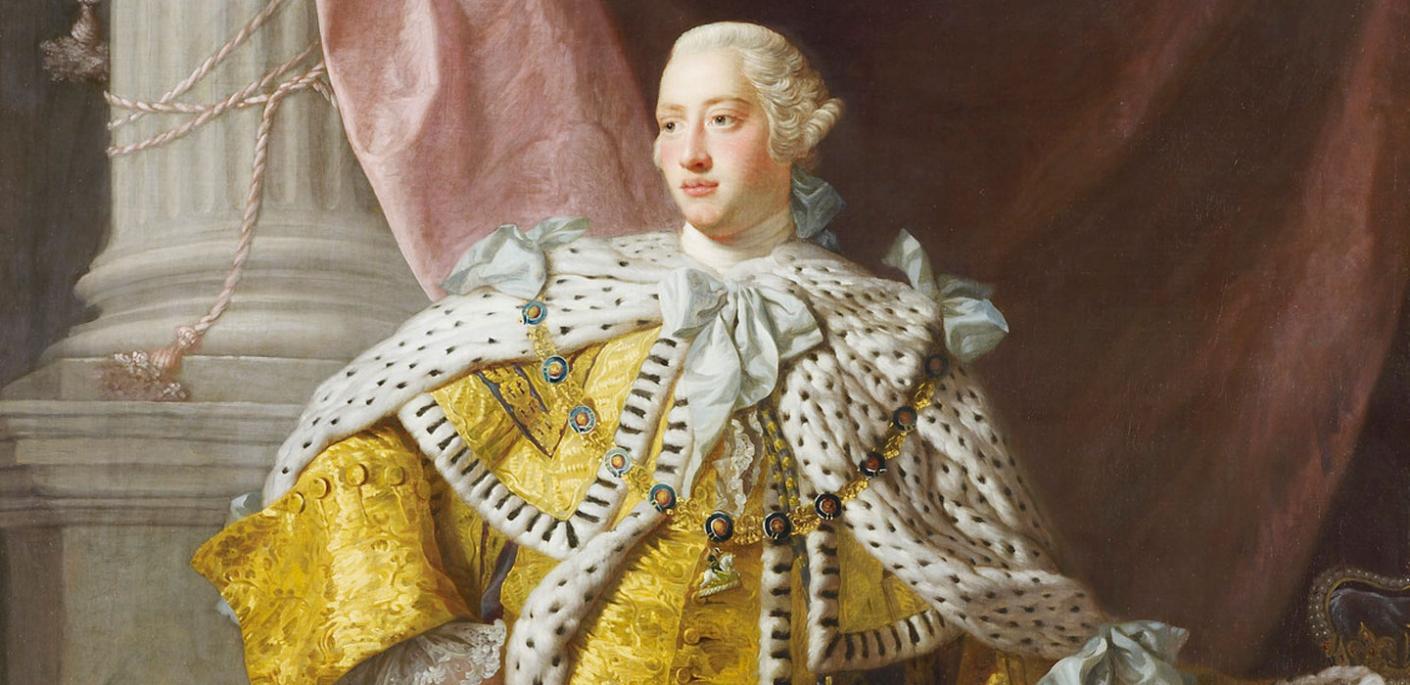Apart from chemistry and physics, his lessons included astronomy, mathematics, French, Latin, history, music, geography, commerce, agriculture and constitutional law, along with sporting and social accomplishments such as dancing, fencing and riding. His religious education was wholly Anglican. At the age of 10, George took part in a family production of Joseph Addison's play Cato and said in the new prologue: "What, tho' a boy! It may with truth be said, A boy in England born, in England bred."[9] Historian Romney Sedgwick argued that these lines appear "to be the source of the only historical phrase with which he is associated".
King George II disliked the Prince of Wales and took little interest in his grandchildren. However, in 1751, the Prince died unexpectedly from a lung injury at the age of 44, and his son George became heir apparent to the throne and inherited his father's title of Duke of Edinburgh. Now more interested in his grandson, three weeks later the King created George Prince of Wales.
In the spring of 1756, as George approached his eighteenth birthday, the King offered him a grand establishment at St James's Palace, but George refused the offer, guided by his mother and her confidant, Lord Bute, who would later serve as Prime Minister. George's mother, now the Dowager Princess of Wales, preferred to keep George at home where she could imbue him with her strict moral values.[
King George II disliked the Prince of Wales and took little interest in his grandchildren. However, in 1751, the Prince died unexpectedly from a lung injury at the age of 44, and his son George became heir apparent to the throne and inherited his father's title of Duke of Edinburgh. Now more interested in his grandson, three weeks later the King created George Prince of Wales.
In the spring of 1756, as George approached his eighteenth birthday, the King offered him a grand establishment at St James's Palace, but George refused the offer, guided by his mother and her confidant, Lord Bute, who would later serve as Prime Minister. George's mother, now the Dowager Princess of Wales, preferred to keep George at home where she could imbue him with her strict moral values.[
Apart from chemistry and physics, his lessons included astronomy, mathematics, French, Latin, history, music, geography, commerce, agriculture and constitutional law, along with sporting and social accomplishments such as dancing, fencing and riding. His religious education was wholly Anglican. At the age of 10, George took part in a family production of Joseph Addison's play Cato and said in the new prologue: "What, tho' a boy! It may with truth be said, A boy in England born, in England bred."[9] Historian Romney Sedgwick argued that these lines appear "to be the source of the only historical phrase with which he is associated".
King George II disliked the Prince of Wales and took little interest in his grandchildren. However, in 1751, the Prince died unexpectedly from a lung injury at the age of 44, and his son George became heir apparent to the throne and inherited his father's title of Duke of Edinburgh. Now more interested in his grandson, three weeks later the King created George Prince of Wales.
In the spring of 1756, as George approached his eighteenth birthday, the King offered him a grand establishment at St James's Palace, but George refused the offer, guided by his mother and her confidant, Lord Bute, who would later serve as Prime Minister. George's mother, now the Dowager Princess of Wales, preferred to keep George at home where she could imbue him with her strict moral values.[
0 Reacties
0 aandelen
0 voorbeeld




